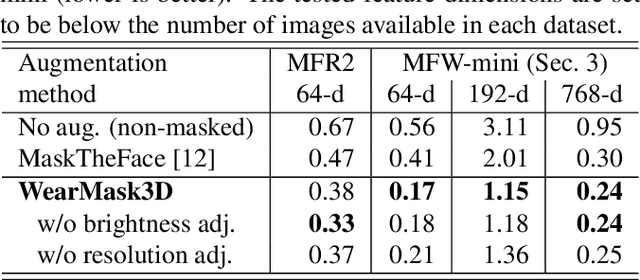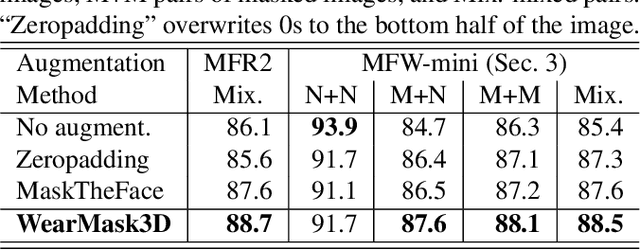A 3D model-based approach for fitting masks to faces in the wild
Paper and Code
Mar 01, 2021



Face recognition research now requires a large number of labelled masked face images in the era of this unprecedented COVID-19 pandemic. Unfortunately, the rapid spread of the virus has left us little time to prepare for such dataset in the wild. To circumvent this issue, we present a 3D model-based approach called WearMask3D for augmenting face images of various poses to the masked face counterparts. Our method proceeds by first fitting a 3D morphable model on the input image, second overlaying the mask surface onto the face model and warping the respective mask texture, and last projecting the 3D mask back to 2D. The mask texture is adapted based on the brightness and resolution of the input image. By working in 3D, our method can produce more natural masked faces of diverse poses from a single mask texture. To compare precisely between different augmentation approaches, we have constructed a dataset comprising masked and unmasked faces with labels called MFW-mini. Experimental results demonstrate WearMask3D, which will be made publicly available, produces more realistic masked images, and utilizing these images for training leads to improved recognition accuracy of masked faces compared to the state-of-the-art.
 Add to Chrome
Add to Chrome Add to Firefox
Add to Firefox Add to Edge
Add to Edge